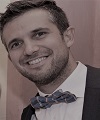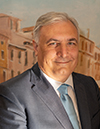Studying at the University of Verona
Here you can find information on the organisational aspects of the Programme, lecture timetables, learning activities and useful contact details for your time at the University, from enrolment to graduation.
Academic calendar
The academic calendar shows the deadlines and scheduled events that are relevant to students, teaching and technical-administrative staff of the University. Public holidays and University closures are also indicated. The academic year normally begins on 1 October each year and ends on 30 September of the following year.
Course calendar
The Academic Calendar sets out the degree programme lecture and exam timetables, as well as the relevant university closure dates..
| Period | From | To |
|---|---|---|
| primo semestre (lauree magistrali) | Oct 4, 2021 | Dec 17, 2021 |
| secondo semestre (lauree magistrali) | Feb 21, 2022 | May 13, 2022 |
| Session | From | To |
|---|---|---|
| sessione invernale | Jan 10, 2022 | Feb 18, 2022 |
| sessione estiva | May 23, 2022 | Jul 8, 2022 |
| sessione autunnale | Aug 22, 2022 | Sep 23, 2022 |
| Session | From | To |
|---|---|---|
| sessione autunnale (validità a.a. 2020/2021) | Dec 6, 2021 | Dec 10, 2021 |
| sessione invernale (validità a.a. 2020/2021) | Apr 6, 2022 | Apr 8, 2022 |
| sessione estiva (validità a.a. 2021/2022) | Sep 5, 2022 | Sep 6, 2022 |
Exam calendar
Exam dates and rounds are managed by the relevant Economics Teaching and Student Services Unit.
To view all the exam sessions available, please use the Exam dashboard on ESSE3.
If you forgot your login details or have problems logging in, please contact the relevant IT HelpDesk, or check the login details recovery web page.
Should you have any doubts or questions, please check the Enrollment FAQs
Academic staff
 francesca.bazzani@univr.it
francesca.bazzani@univr.it
 daniela.cavallo@univr.it
daniela.cavallo@univr.it
 massimo.melchiori@univr.it
massimo.melchiori@univr.it
 paolo.pasquetto@univr.it
paolo.pasquetto@univr.it

Santi Flavio
 flavio.santi@univr.it
flavio.santi@univr.it
 045 802 8239
045 802 8239
Study Plan
The Study Plan includes all modules, teaching and learning activities that each student will need to undertake during their time at the University.
Please select your Study Plan based on your enrollment year.
1° Year
| Modules | Credits | TAF | SSD |
|---|
2° Year activated in the A.Y. 2022/2023
| Modules | Credits | TAF | SSD |
|---|
| Modules | Credits | TAF | SSD |
|---|
| Modules | Credits | TAF | SSD |
|---|
| Modules | Credits | TAF | SSD |
|---|
Legend | Type of training activity (TTA)
TAF (Type of Educational Activity) All courses and activities are classified into different types of educational activities, indicated by a letter.
Type D and Type F activities
Nei piani didattici di ciascun Corso di studio è previsto l’obbligo di conseguire un certo numero di crediti formativi mediante attività a scelta (chiamate anche "di tipologia D e F").
Oltre che in insegnamenti previsti nei piani didattici di altri corsi di studio e in certificazioni linguistiche o informatiche secondo quanto specificato nei regolamenti di ciascun corso, tali attività possono consistere anche in iniziative extracurriculari di contenuto vario, quali ad esempio la partecipazione a un seminario o a un ciclo di seminari, la frequenza di laboratori didattici, lo svolgimento di project work, stage aggiuntivo, eccetera.
Come per ogni altra attività a scelta, è necessario che anche queste non costituiscano un duplicato di conoscenze e competenze già acquisite dallo studente.
Quelle elencate in questa pagina sono le iniziative extracurriculari che sono state approvate dal Consiglio della Scuola di Economia e Management e quindi consentono a chi vi partecipa l'acquisizione dei CFU specificati, alle condizioni riportate nelle pagine di dettaglio di ciascuna iniziativa.
Si ricorda in proposito che:
- tutte queste iniziative richiedono, per l'acquisizione dei relativi CFU, il superamento di una prova di verifica delle competenze acquisite, secondo le indicazioni contenute nella sezione "Modalità d'esame" della singola attività;
- lo studente è tenuto a inserire nel proprio piano degli studi l'attività prescelta e a iscriversi all'appello appositamente creato per la verbalizzazione, la cui data viene stabilita dal docente di riferimento e pubblicata nella sezione "Modalità d'esame" della singola attività.
COMPETENZE TRASVERSALI
Scopri i percorsi formativi promossi dal Teaching and learning centre dell'Ateneo, destinati agli studenti iscritti ai corsi di laurea, volti alla promozione delle competenze trasversali: https://talc.univr.it/it/competenze-trasversali
ATTENZIONE: Per essere ammessi a sostenere una qualsiasi attività didattica, inlcuse quelle a scelta, è necessario essere iscritti all'anno di corso in cui essa viene offerta. Si raccomanda, pertanto, ai laureandi delle sessioni di dicembre e aprile di NON svolgere attività extracurriculari del nuovo anno accademico, cui loro non risultano iscritti, essendo tali sessioni di laurea con validità riferita all'anno accademico precedente. Quindi, per attività svolte in un anno accademico cui non si è iscritti, non si potrà dar luogo a riconoscimento di CFU.
| years | Modules | TAF | Teacher |
|---|---|---|---|
| 1° 2° | The fashion lab (1 ECTS) | D |
Caterina Fratea
(Coordinator)
|
| 1° 2° | The fashion lab (2 ECTS) | D |
Caterina Fratea
(Coordinator)
|
| 1° 2° | The fashion lab (3 ECTS) | D |
Caterina Fratea
(Coordinator)
|
| years | Modules | TAF | Teacher |
|---|---|---|---|
| 1° 2° | Marketing plan | D |
Virginia Vannucci
(Coordinator)
|
| years | Modules | TAF | Teacher |
|---|---|---|---|
| 1° 2° | Internationalization and Sustainability. Friends or Enemies? | D |
Angelo Zago
(Coordinator)
|
| 1° 2° | Internationalization and Sustainability. Friends or Enemies? | D |
Angelo Zago
(Coordinator)
|
| 1° 2° | Internationalization and Sustainability. Friends or Enemies? | D |
Angelo Zago
(Coordinator)
|
| 1° 2° | Data Analysis Laboratory with R (Verona) | D |
Marco Minozzo
(Coordinator)
|
| 1° 2° | Data Visualization Laboratory | D |
Marco Minozzo
(Coordinator)
|
| 1° 2° | Python Laboratory | D |
Marco Minozzo
(Coordinator)
|
| 1° 2° | Data Science Laboratory with SAP | D |
Marco Minozzo
(Coordinator)
|
| 1° 2° | Advanced Excel Laboratory (Verona) | D |
Marco Minozzo
(Coordinator)
|
| 1° 2° | Excel Laboratory (Verona) | D |
Marco Minozzo
(Coordinator)
|
| 1° 2° | Programming in Matlab | D |
Marco Minozzo
(Coordinator)
|
| 1° 2° | Programming in SAS | D |
Marco Minozzo
(Coordinator)
|
| 1° 2° | Samsung Innovation Camp | D |
Marco Minozzo
(Coordinator)
|
| years | Modules | TAF | Teacher |
|---|---|---|---|
| 1° 2° | Business & Predictive Analytics for International Firms (with Excel Applications) - 2021/2022 | D |
Angelo Zago
(Coordinator)
|
| 1° 2° | What paradigms beyond the pandemic? Individual vs. Society, Private vs. Public | D |
Federico Brunetti
(Coordinator)
|
| 1° 2° | Integrated Financial Planning | D |
Riccardo Stacchezzini
(Coordinator)
|
| years | Modules | TAF | Teacher |
|---|---|---|---|
| 1° 2° | The fashion lab (1 ECTS) | D |
Caterina Fratea
(Coordinator)
|
| 1° 2° | The fashion lab (2 ECTS) | D |
Caterina Fratea
(Coordinator)
|
| 1° 2° | The fashion lab (3 ECTS) | D |
Caterina Fratea
(Coordinator)
|
| years | Modules | TAF | Teacher |
|---|---|---|---|
| 1° 2° | La metodologia SEM applicata allo studio della relazione tra gestione del rischio e performance nelle PMI | D |
Cristina Florio
(Coordinator)
|
| 1° 2° | Laboratory on research methods for business | D | Not yet assigned |
| years | Modules | TAF | Teacher |
|---|---|---|---|
| 1° 2° | How to Enter in a Foreign Market. Theory and Applications - 2021/2022 | D |
Angelo Zago
(Coordinator)
|
History of Economic and Territorial Development (2022/2023)
Teaching code
4S001452
Teacher
Coordinator
Credits
6
Language
Italian
Scientific Disciplinary Sector (SSD)
SECS-P/12 - ECONOMIC HISTORY
Period
Primo semestre (lauree magistrali) dal Oct 3, 2022 al Dec 23, 2022.
Location
VERONA
Learning objectives
The course mainly aims to support the attitude to consider the economic development as a complex issue, surely not determined only by quantitative factors, on the opposite greatly influenced by non-economic factors, widely cultural, such as religion, ethics, geography, technology, history, demography etc. The course discusses some interpretations based on relevant economic history and economic recent contributions.
Program
1. Definition of economic development. Economic development considered as a cultural process. Robert J. Barro and J. Huizinga.
2. Capital accumulation and the pursuing of the eternal life in the Middle Age. Its social and economic organization.
3. Some relevant cases of social utopia in the 19th and 20th Century. The Soviet communism in the U.S.S.R and some other countries. A concluded experiment?
4. Inclusive economic institutions and economic policies as a determinant of economic growth (UK, USA, Japan, West Europe).
5. Selective economic institutions and economic policies as a determinant of nation’s decline and failure (Mexico, USSR, China).
6. Culture and civilization: some paradigmatic case in Latin America.
7. Economic development in Asia: the cases of China, Japan and south Korea.
8. Bourgeois virtues: W. Sombart and D. McCloskey.
9. Patterns of economic development in Veneto and in the area of Verona.
10. The cluster’s pattern of economic development and its consequences for the SME territory.
11. Environmental issues and economic growth. Some degrowth theories. Sustainability and Economic equilibrium.
Bibliography
Learning assessment procedures
The examination is conducted orally.
Points of discussion include the methodology for understanding economic development, as presented in the lectures and in the examination texts.
The student will then individually discuss a topic of their choice from the History of Economic and Territorial Development, agreed upon with the instructor and presented in a written report of at least 10-12 typed pages.
Evaluation criteria
Demonstrating personal critical interpretative abilities represents the most significant evaluation criterion.
Consistency in active participation is, of course, an element that is highly regarded
Criteria for the composition of the final grade
Knowledge of the facts 30%
Personal critical abilities 30%
Attendance and interest 20%
Clarity and richness of presentation 20%
Exam language
italiano inglese
Career prospects
Module/Programme news
News for students
There you will find information, resources and services useful during your time at the University (Student’s exam record, your study plan on ESSE3, Distance Learning courses, university email account, office forms, administrative procedures, etc.). You can log into MyUnivr with your GIA login details: only in this way will you be able to receive notification of all the notices from your teachers and your secretariat via email and soon also via the Univr app.
Linguistic training CLA
Graduation
List of theses and work experience proposals
| theses proposals | Research area |
|---|---|
| Brand identity e corporate brand storytelling | Various topics |
| Il futuro del corporate reporting (COVID19) | Various topics |
| Le scelte alimentari dei giovani italiani: quanto è importante la sostenibilità? | Various topics |
| Nuovi scenari e nuovi contesti di acquisto e consumo di bevande alcoliche | Various topics |
| Sfide e opportunità del contesto digitale | Various topics |
| Tesi di Laurea in Economia Comportamentale | Various topics |





























